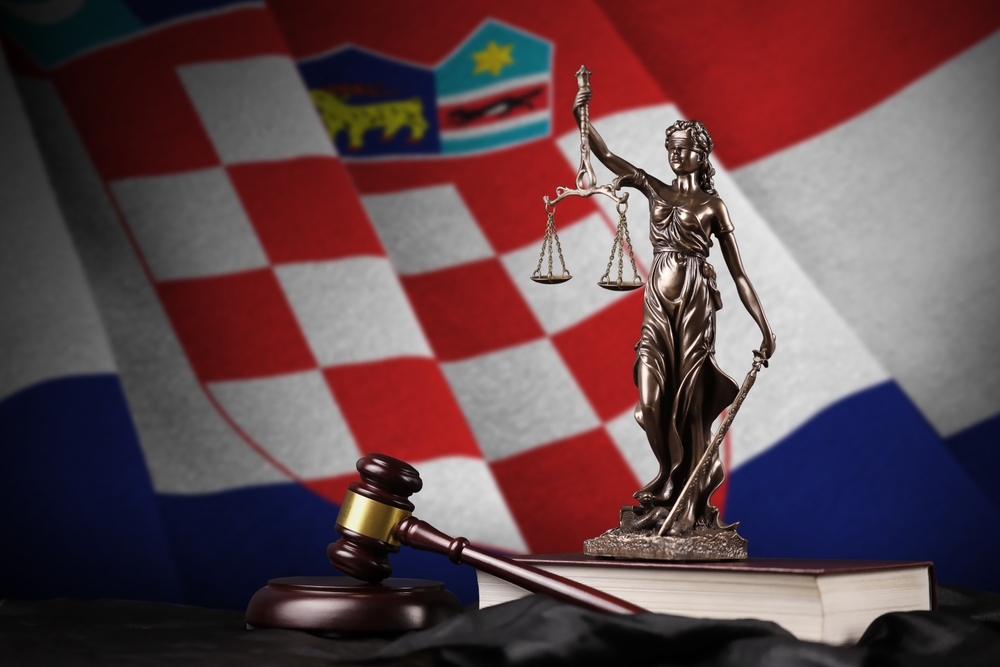Ivan Turudić, just elected by the Croatian parliament as head of the Croatian General Prosecutor’s Office, chose his first interview to attack the EPPO, the European Public Prosecutor’s Office which opened investigations for corruption against several ministers of the Plenković government. The opposition protests
“I’m not sure we should have adopted that institution, many countries don’t have it.” The first statement to the press by the new Croatian Attorney General has already sparked a storm. Ivan Turudić, just elected by the Croatian parliament as head of the DORH (the Croatian general prosecutor’s office), despite the controversy and resistance from the opposition, chose his first interview to attack the EPPO , the European Public Prosecutor’s Office. European prosecutors, Turudić said, “look after the EU’s financial interests” and “their power is overestimated.” However, there are not “many” member countries that have not joined the enhanced cooperation and have not joined the EPPO: out of 27 only 5 do not participate (Hungary, Poland, Ireland, Sweden and Denmark).
It may seem like a squabble for insiders, but in Croatia – where the EPPO recently opened investigations for corruption against several ministers and members of the ruling party, after the DORH seemed to have ignored the facts – it is instead a question of a highly political issue. Since he came to power in 2016, conservative Prime Minister Andrej Plenković has had to replace as many as thirty ministers and undersecretaries, precisely because they were involved in corruption and abuse of power scandals revealed by the press. Now Plenković has effectively imposed the new Attorney General and is preparing to approve a law that criminalizes the unauthorized publication of investigative content. Is there anything to worry about?
A new prosecutor amidst controversy
Last Wednesday, the Sabor, the Croatian parliament, approved with 78 votes in favour, 60 against and two abstentions the appointment of the judge of the High Criminal Court Ivan Turudić as Croatian prosecutor general. His candidacy had been put forward by the government. Even before parliament expressed its opinion on him, Turudić was considered by the opposition as a judge close to the HDZ, Prime Minister Plenković’s party. But in recent days some interceptions published by the newspaper Morning paper have further exacerbated the political conflict. In fact, on the eve of the vote in parliament, the newspaper printed some messages exchanged on Whatsapp between 2016 and 2020 between Turudić and Josipa Rimac, former undersecretary of state in the HDZ, now in prison for corruption.
The messages tell of a close relationship, at times intimate, and dotted with exchanges of favors, very far from the “superficial” relationship that Turudić had spoken of when interviewed about it by the press or pressed by the opposition during the hearing at Sabor. Furthermore, in the past, Ivan Turudić had also met with Zdravko Mamić, the executive director of Dinamo Zagreb, convicted of tax evasion and now a fugitive in Bosnia and Herzegovina. In short, for the opposition, this is behavior unworthy of a judge and even less so for the Prosecutor General of Croatia.
For this reason, the opposition party Možemo (We Can) organized a sit-in in front of parliament the night before the vote, while the other groups used harsh tones to criticize the government’s choice. “Croatia is sinking into a dangerous anti-democratic mud”, declared the Social Democratic MP (SDP) Davorko Vidović, while for the President of the Republic Zoran Milanović, also elected as an SDP member, “the HDZ unanimously elected this wastrels. This is the first time since comrade Tito’s time that the party elects the general prosecutor.”
According to the opposition, Prime Minister Plenković wants to restrict the autonomy of the Croatian judicial system and secure it, also through the brand new “gag law”, that there will be no new investigations and leaks of information on corruption cases linked to his executive in the future. On the contrary, the Prime Minister spoke of “judicial voyeurism” on the part of the Croatian press in the publication of wiretaps between Turudić and Rimac, and called the opposition’s criticism of the new Attorney General “an attempt to politically damage the government” in a year of great elections for Croatia.
United opposition?
This is in fact one of the most interesting aspects of the whole story. Faced with the Turudić case, the two main progressive opposition parties – Možemo and the SDP – seem to have put aside old grudges. In the aftermath of the approval of Turudić’s nomination as prosecutor general, these two groups together with six other opposition parties – from the center to the left – presented themselves united in front of the press. “Croatia is a democratic country and we will not allow it to follow the path that Vučić is taking Serbia,” said SDP leader Peđa Grbin. In an interview on N1 television, Sandra Benčić from Možemo admitted that her party is discussing possible joint lists in some constituencies with the SDP. This year we will vote in Croatia for the European elections, the political elections and, at the end of the year, also for the presidential elections.
However, we are still far from a truly united front against Plenković’s HDZ, who remain the favourites. Second a recent survey carried out by RTL television, HDZ would obtain 25% of the votes today, compared to 16% for the SDP and around 9% for Most (right) and Možemo. The far-right and opposition Patriotic Movement (DP) would be around 8%. Head of state Zoran Milanović, who will probably seek a second mandate at the end of the year, remains the most popular politician with around 19% of the vote, followed by Prime Minister Andrej Plenković with 16%.
Have you thought about a subscription to OBC Transeuropa? You will support our work and receive preview articles and more content. Subscribe to OBCT!
Comments, where possible, are screened by our staff before being made public. The time required for this operation can vary. Go to our policy
